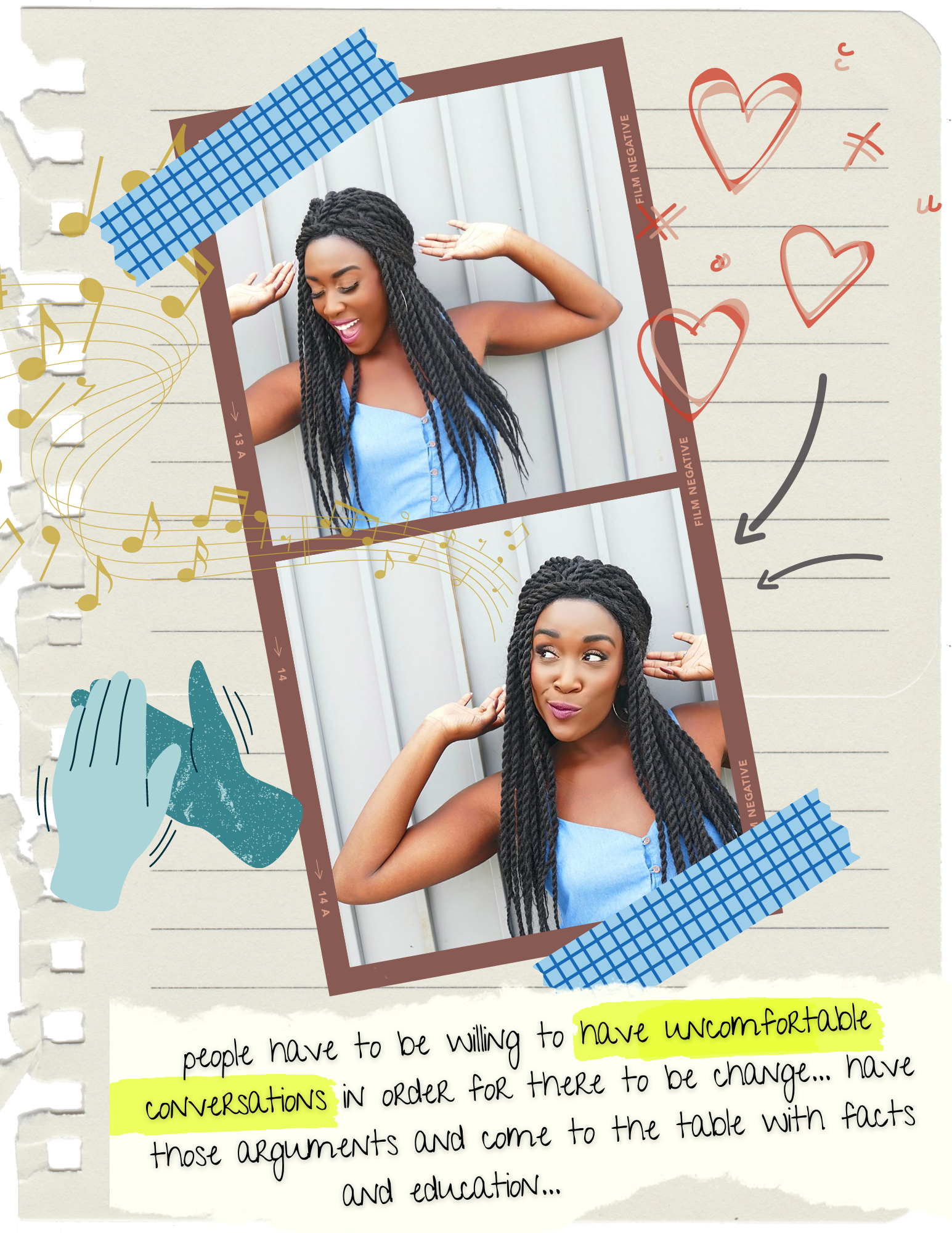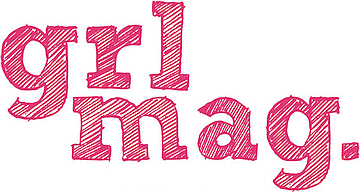
Malynda Hale is known for her career as a singer/songwriter, but her accomplishments far surpass this title. She has also co-founded her own record label, acted in films, television, and theatre, and is now a mother to an adorable baby girl. Though her days are busy, she has always made time to fight for the causes she believes in. In the midst of a Black Lives Matter movement and a new mainstream focus on equal rights, it seemed like an interview with a social justice activist like Malynda Hale couldn’t be about anything else. With the pandemic halting her normally full schedule, I got to sit down with her and ask her about the state of the world, discrimination in the music industry, and her hopes for the future of the Black and LGBTQ+ communities.
JULIA DUVA: WHAT WAS THE FIRST MOMENT YOU REALIZED YOU HAD TO ADVOCATE FOR OTHER PEOPLE?
Malynda Hale: What kind of made the shift for me was there was a story a few years ago of a young girl, named Leelah Alcorn, who was a transgender girl who took her own life. To me that story really struck me because I have friends in my life who are transgender, who deal with those identity issues, and deal with how they are perceived in society. And I knew that I was building this platform to influence people, and I thought, “You know what, I need to make a shift in my career and in the music that I make, how I use my voice, and start advocating for other people, because I had the opportunity to do so, to be able to listen.”
JD: DO YOU THINK THAT THE RECENT FOCUS ON THE BLACK LIVES MATTER MOVEMENT BY THE MEDIA AND THE PUBLIC WILL HAVE LASTING CHANGE IN TERMS OF ACTIVISM AND AWARENESS?
MH: I always say, “History repeats itself,” and, unfortunately, this feels like a second Civil Rights Movement. But I think that the most recent issues with police brutality, there was sort of an awakening within society to realize, “Oh this is a huge issue, this is something we need to deal with.” I do feel like people are realizing that the Black community hasn’t been saying this for years just to hear ourselves talk, it actually has been an issue. I think the people who have been on the ground and been in the front lines and been a part of the protests now are really seeing that we have to make a change now and this is how we do it.
JD: IN THIS MOST RECENT BLM MOVEMENT, PEOPLE ARE BEING CALLED OUT BY NAME AND BEING EXPOSED FOR THEIR RACISM. SO, AS A BLACK MUSICIAN, HAVE YOU EXPERIENCED OR WITNESSED RACISM/DISCRIMINATION IN THE MUSIC INDUSTRY?
MH: Unfortunately yes, and I wish it wasn’t part of my story but I, and other colleagues that are Black, have experienced that. I think that it is an unfortunate situation because a lot of music that people are influenced by are from Black musicians and Black music. It is kind of unfortunate when you have that music appropriated and you yourself aren’t even really given those opportunities. For me, it’s just having missed opportunities, [people assuming] I was a certain type of singer, or I am not the “right look.” I wouldn’t say I haven’t experienced anything overt. The music industry has a long way to go, and I know they are trying to fix it, even with little things like not having an “Urban” category anymore. So, they are making a lot of changes in the music industry and I hope we see it within the next few years really a huge shift in that as well.
JD: YOU TALK A LOT IN YOUR PODCAST ABOUT LGBTQ+ RIGHTS, AND YOU ALSO TALK ABOUT BEING A PROGRESSIVE CHRISTIAN. IS IT HARD RIGHT NOW TO STAY COMMITTED TO YOUR FAITH IN THE FACE OF SUCH A LOUD MOVEMENT OF ANTI-LGBTQ+ CHRISTIANS?
MH: No, I don’t find it hard to stick to my faith. What I do find hard is I sort of have to defend being a Christian to people, because it has received such a negative connotation with people. So, the hardest thing is, when I say I am a Christian, to say, “No, I am not that kind of Christian!” It’s unfortunate that I have to do that because Christianity shouldn’t be that way. If people love each other, let them love each other. That’s the message that I am trying to continue to spread. It is really just about love.
JD: TO YOU, WHAT DOES IT MEAN TO BE AN ALLY, AND HOW ARE YOU SEEING THE IDEA OF ALLYSHIP CHANGE WITH THIS MOST RECENT MOVEMENT?
MH: Well, I am not a huge fan of the word “ally.” I like to say, “Be an advocate.” I think it’s important to differentiate those two. When it comes to allyship, you are establishing, “Hey, I am with you, I’m here for you, I see you.” Advocacy does require you to do work. You are showing up for other people, and showing them that you are able to do the work, that it’s beyond a social media post, it’s beyond just signing a petition. Showing up and actually doing the work is what’s most important.
JD: WHAT ARE SOME CONCRETE THINGS THAT YOU CAN LEAVE US WITH THAT WE CAN BE DOING RIGHT NOW?
MH: Read. I can’t stress enough how important education is. It is important to read authors of color so you can gain those experiences. Because if you aren’t exposed to those people in your life, then your worldview is going to be very reductive. Listen. If you do have people in your life, listen without getting defensive, listen without questioning what they are saying, because their experience is their experience. If you try to question it in a way that is reducing it, then you are already taking away their voice. Engage in uncomfortable conversations with people. It’s very hard to talk to other privileged people and explain to them why they have privilege because some people don’t think that they do. So, people have to be willing to have uncomfortable conversations in order for there to be change. Fight with your family members if you have to, have those arguments and come to the table with facts and education. The more people that are having those conversations, the more progress we are going to make in society.

My daughter never ceases to amaze me. I am so proud of her growth and awareness of a painful history that keeps repeating. Continue to speak truth to power Malynda.
We couldn’t agree more, Diane 🙏 Thank you so much.
Great read !!! Malynda is a strong leader in our world and caring. I am happy to call her my friend❤️
Thank you so much, Angela! We adored getting the chance to sit down with Malynda and can’t wait to see how she continues to make our world that much more beautiful and equitable <3
Its superb as your other articles : D, thanks for posting.
Great site! I am loving it!! Will come back again. I am bookmarking your feeds also
I truly appreciate this post. I have been looking everywhere for this! Thank goodness I found it on Bing. You have made my day! Thank you again!